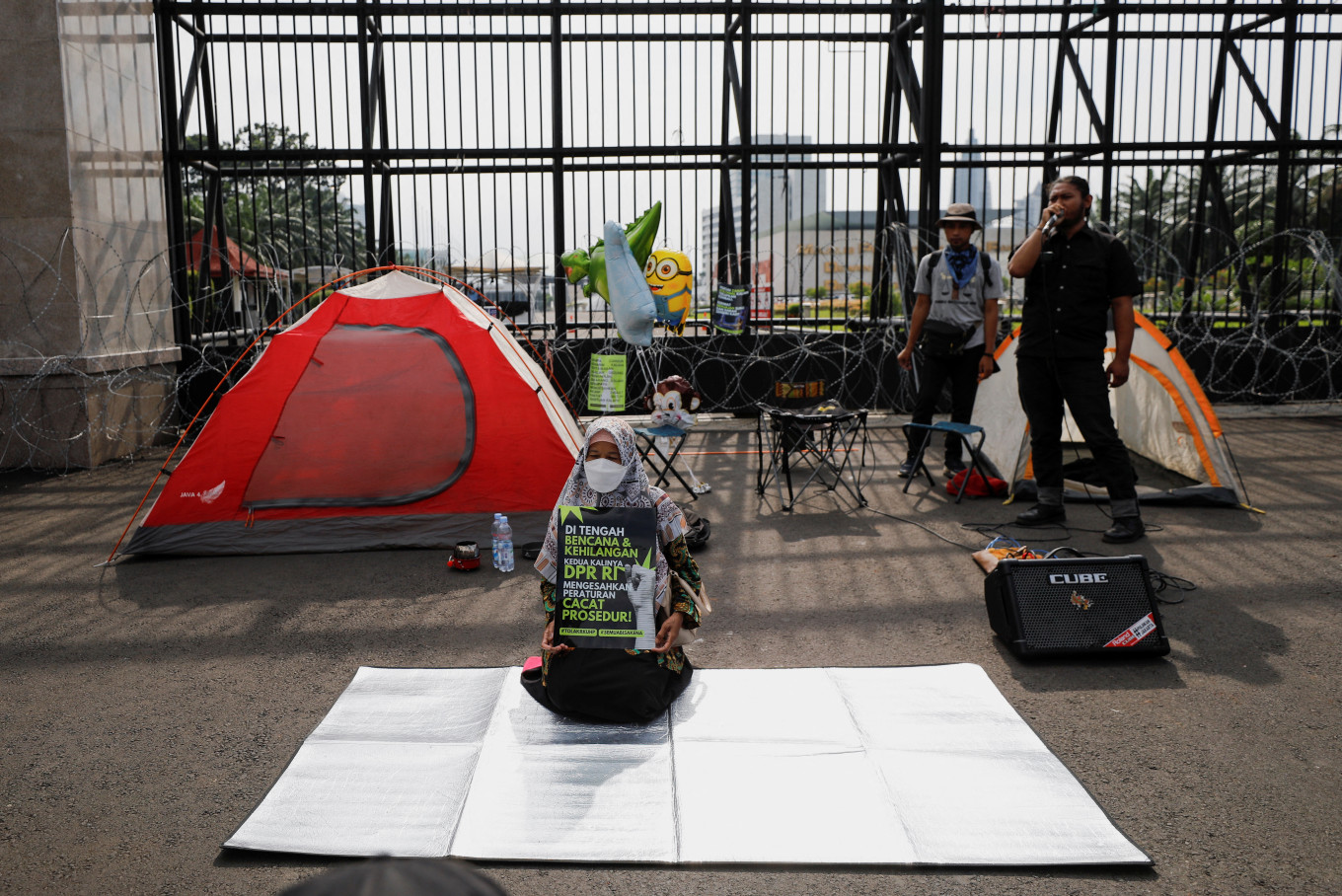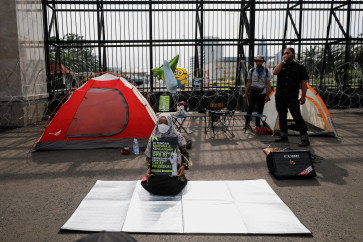Popular Reads
Top Results
Can't find what you're looking for?
View all search resultsPopular Reads
Top Results
Can't find what you're looking for?
View all search resultsChastened court unlikely to repeal new penal code
Change text size
Gift Premium Articles
to Anyone
 Activists take part in a protest after the House of Representatives approved a new criminal code that will ban sex outside marriage, cohabitation between unmarried couples, insulting the president, and expressing views counter to the national ideology, outside the House buildings in Jakarta, Indonesia, December 6, 2022.
(Reuters/Willy Kurniawan)
Activists take part in a protest after the House of Representatives approved a new criminal code that will ban sex outside marriage, cohabitation between unmarried couples, insulting the president, and expressing views counter to the national ideology, outside the House buildings in Jakarta, Indonesia, December 6, 2022.
(Reuters/Willy Kurniawan)
C
ivil society groups are planning street protests and considering civil disobedience to compel policymakers to repeal the newly passed Criminal Code (KUHP) amid dwindling trust in the Constitutional Court, currently the only legal avenue to alter the highly controversial legislation.
Established in 2001 as a guardian of the Constitution and Indonesian democracy, the Constitutional Court had served as a reliable judicial institution to keep the powers of the executive and legislature in check. However, a series of political maneuvers by the House of Representatives in recent years has undercut the independence of the court and dashed hopes for an objective review of the new Criminal Code.
A coalition of some 40 civil groups staged two days of protests to reject the Tuesday’s passage of the code, which contains illiberal provisions they say are reminiscent of New Order authoritarianism.
Law and Human Rights Minister Yasonna Laoly and House legal affairs commission chairman Bambang Wuryanto have suggested that those who object the new law should file a judicial review with the Constitutional Court.
"Please simply file an appeal for judicial review with the court. There is no need to stage protests," said Bambang, who, like Yasonna, is a member of the Indonesian Democratic Party of Struggle (PDI-P).
Read also: Lawmakers pass revised Criminal Code despite protests
Activists, however, doubt that turning to the court will make any difference.


















